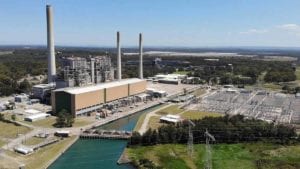Further inspection of the Abbott government budget papers reveal some more horror stories – beyond the already reported end of support for emerging renewables deployment and research, and the new pikes with twists on the carbon abatement plans.
The Abbott government – to the horror of the industry – has announced the abrupt closure of the Energy Efficiency Opportunities, as well as rejecting calls for the revival of Low Carbon Australia, which also supported investments in energy efficiency. It has also brought an end to support for ethanol and algae fuel programs.
Industry Minister Ian Macfarlane, whose portfolio covers energy, boasted in a press release on Thursday that the EEO had been dumped as part of the government’s war on “red and green tape.”
He said the program was unnecessary because businesses were already taking action to reduce their energy consumption and costs. He indicated that government handouts via the $2.5 billion Emissions Reduction Fund could provide a further incentive.
However, Rob Murray-Leach, CEO of the Energy Efficiency Council, described the decision as “incomprehensible.” He said the program, which was to cost $20 million to run over the next five years, had helped deliver more than $1 billion a year in savings since 2006.
“The Abbott government promised to help lower energy bills, but today they’ve broken it by cutting the Energy Efficiency Opportunities program. This world-class program helped companies find ways to save energy and lower their bills,” Murray-Leach said in a statement.
“With manufacturing on a knife edge and energy prices rising, the government should be doing everything it can to help businesses save energy. Every dollar invested in the program delivered $2.90 of benefits to Australian business. Cutting funding to help businesses save energy is just going to hurt the economy.”
This is the third program to be dumped that leveraged private investment or benefits of that magnitude. The $3 billion Australian Renewable Energy Agency was leveraging investments at $2.50 for every $1 invested, and the $10 billion Clean Energy Finance Corporation, also under attack, is leveraging $2.90 for every dollar.
The industry also dismisses the ERF – a centerpiece of the government’s Direct Action plan – because most companies would be dissuaded by the high transaction costs of having to make a bid in the auction system. Many companies would simply consider that a risky process. Responding to a price incentive (such as a price on carbon), or through a program like the EEO, would be much more efficient.
Meanwhile, News Ltd reports that the Abbott government has abandoned another election promise, this time to re-establish Low Carbon Australia – a body that sought to provide specialist financing for energy efficiency projects, but which is now part of the CEFC that the government wants to dismantle.
Some major utilities have argued against energy efficiency measures, saying that the lower demand it causes results in falling volumes and profits. They are using the same argument to end or reduce the renewable energy target.
Meanwhile, ABC reports that the Ethanol Production Grants program will be scrapped from July 2015, with projected net savings of $120 million over the next four years, and a 2.5c a litre excise introduced on domestically-produced ethanol.
The ABC said the federal government also plans to save $156 million over the next four years by abolishing the Cleaner Fuels Grant Scheme, and it is scrapping a$5 million program that was supporting “advanced biofuels” such as those from algae.
The diesel fuel rebate, however, remains untouched.








